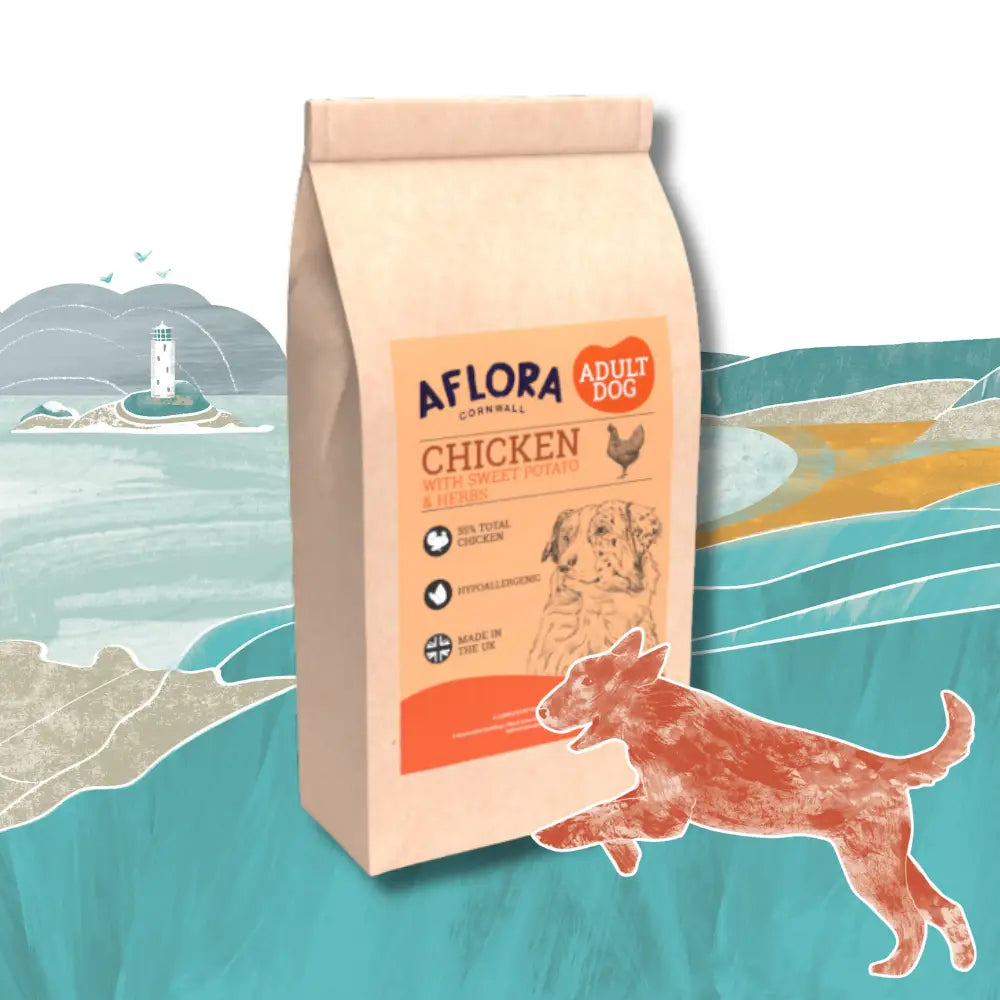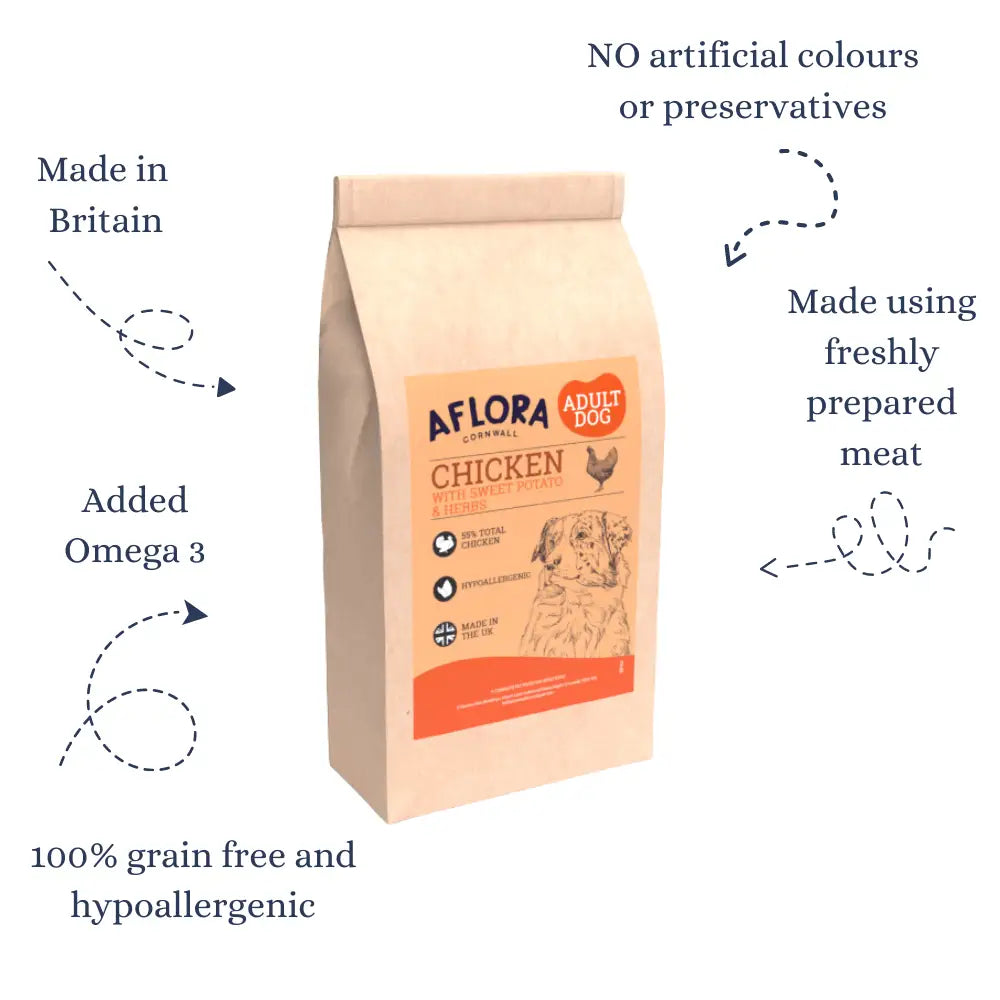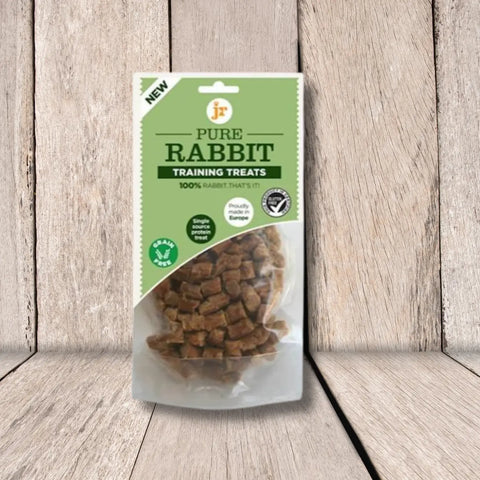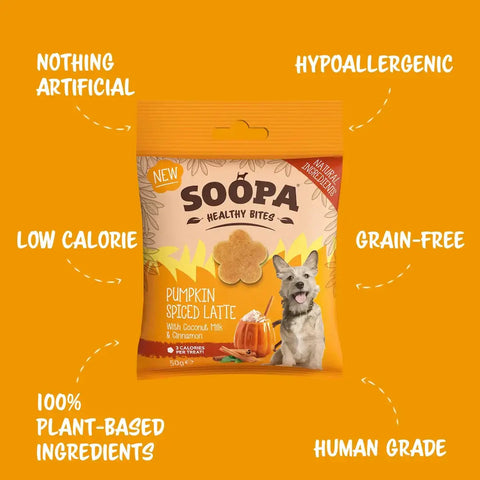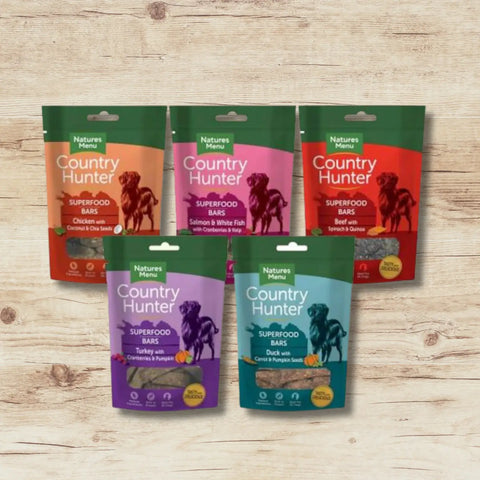In recent years, dog owners have become increasingly mindful of their pets’ diets, just as they would with their own. With a range of healthy dog treats available, choosing the best snacks for your dog can be both exciting and overwhelming. A healthy diet for your dog includes balanced, nutritious treats that go beyond taste to support their wellbeing. This guide will walk you through why healthy dog treats matter, what to look for when choosing them, and which options we recommend to keep your dog happy, active, and healthy.
Why Healthy Dog Treats Matter
Just like us, dogs benefit from a balanced, nutritious diet, which should include not just their regular meals but also their treats. Healthy dog treats offer several key benefits:
- Nutritional Support: High-quality treats often include essential nutrients that can support your dog’s immune system, digestion, coat, and more.
- Weight Management: Obesity is a rising issue among pets, and low-calorie, nutritious treats can help manage your dog’s weight without compromising on enjoyment.
- Training Benefits: Healthy treats make fantastic training aids. They allow you to reward your dog frequently without exposing them to artificial fillers or excessive sugars.
- Digestive Health: Many healthy treats are designed to be easily digestible and allergen-free, making them suitable for dogs with sensitive stomachs or food allergies.
Understanding What Makes a Dog Treat Healthy
Choosing a healthy dog treat isn’t just about picking an option with “natural” on the label. Here are a few important criteria to help you identify a nutritious treat:
-
Natural Ingredients: Look for treats made with whole food ingredients like real meat, vegetables, and fruits. Avoid artificial colours, flavours, and preservatives.
-
High-Quality Protein Sources: Protein is a critical component of a dog’s diet, and treats made with real meat or fish as the first ingredient are generally healthier and more digestible.
-
Limited Ingredients: The fewer ingredients in a treat, the better, especially for dogs with food allergies or sensitivities. Limited-ingredient treats reduce the risk of allergens and help you monitor your dog’s intake.
-
Functional Additives: Some healthy treats contain added ingredients like glucosamine for joint support, probiotics for digestion, or omega-3 fatty acids for a shiny coat and skin health.
-
Grain-Free and Low-Calorie Options: Dogs with sensitivities to grains benefit from grain-free treats. Low-calorie treats are great for dogs that need to watch their weight.
Popular Types of Healthy Dog Treats
Healthy dog treats come in all shapes and sizes to suit different preferences and dietary needs. Here are some popular types you may want to explore:
1. Natural Meat Treats
Natural meat treats, like freeze-dried or air-dried options, contain high-quality protein without additives. Examples include dried beef liver, chicken breast, or fish treats. These treats are packed with flavour and nutrients, making them perfect for dogs who love meaty flavours and need protein-packed snacks.
2. Vegetable-Based Treats
Vegetable-based treats are ideal for dogs who need a lower-calorie option or have protein sensitivities. Sweet potatoes, carrots, and green beans are popular ingredients in these treats. They provide fibre and vitamins, supporting digestion and general health.
3. Dental Chews
Dental health is essential for dogs, and dental chews are designed to help reduce plaque and tartar. Look for dental treats with natural abrasives like brown rice or potato starch and without artificial flavours or colours.
4. Soft and Chewy Treats
Soft treats are great for training, particularly for puppies or older dogs with sensitive teeth. These treats are often made with meat and vegetables and are easy to break into smaller pieces, making them ideal for frequent rewards.
5. Freeze-Dried Treats
Freeze-dried treats maintain much of the original nutrients of raw ingredients, as the drying process does not involve high heat. They’re minimally processed, making them an excellent choice for a healthy treat with a rich, natural flavour that dogs love.
6. Functional Treats
Functional treats contain ingredients that address specific health needs, such as joint support or skin health. They may include added supplements like glucosamine, chondroitin, or omega-3 fatty acids. These treats are an easy way to give your dog a health boost while treating them to something tasty.
Ingredients to Avoid in Dog Treats
Not all treats are created equal, and some ingredients commonly found in dog treats can harm your dog’s health over time. Here are a few to steer clear of:
- Artificial Preservatives: BHA, BHT, and ethoxyquin are preservatives that have been linked to health issues. Opt for treats that use natural preservatives like vitamin E (tocopherols).
- Fillers: Corn, soy, and wheat can cause allergies and digestive upset in some dogs. Choose treats with high-quality ingredients and avoid those that list these fillers.
- Sugars and Sweeteners: Sugar, corn syrup, and artificial sweeteners like xylitol are harmful to dogs. Always avoid treats with added sugars or artificial sweeteners, as these can lead to weight gain and even poisoning in dogs.
- Artificial Flavours and Colours: These additives have no nutritional value and can cause allergies or hyperactivity in some dogs. Treats with natural colours and flavours are a better choice.
Healthy Dog Treat Recommendations from The Pets Larder
To help you navigate the world of healthy dog treats, we’ve selected a few of our favourites, available from The Pets Larder.
1. JR Pet Products Pure Rabbit Treats
- Type: Air-Dried Meat
- Benefits: Made with 100% pure rabbit, these treats are hypoallergenic and suitable for sensitive dogs. They’re high in protein and low in fat, making them ideal for training and as a high-reward snack.
2. Lily’s Kitchen Training Treats
- Type: Soft and Chewy
- Benefits: These treats use wholesome ingredients like chicken, liver, and organic apples. They’re easy to break into small pieces, perfect for training sessions, and contain no artificial additives.
3. Soopa Healthy Bites – Sweet Potato and Pumpkin
- Type: Vegetable-Based
- Benefits: These hypoallergenic treats are made with sweet potato and pumpkin, which are rich in vitamins and low in calories. Suitable for dogs with allergies or those needing a lower-calorie treat.
4. Natures Menu Superfood Bars
- Type: Functional Treat
- Benefits: With ingredients like turkey, cranberry, and quinoa, these bars support overall health with antioxidants and vitamins. They’re a great snack for active dogs and come in convenient bar form for easy feeding.
Tips for Treating Your Dog Healthily
Even with healthy treats, moderation is key to keeping your dog in optimal health. Here are some helpful tips for incorporating treats into your dog’s diet:
-
Mind the Calories: Treats should make up no more than 10% of your dog’s daily caloric intake. High-quality treats are often nutrient-dense, so a little goes a long way.
-
Choose Age-Appropriate Treats: Puppies, adults, and senior dogs have different dietary needs. Soft treats work best for puppies and seniors, while harder chews are suitable for adult dogs with stronger teeth.
-
Use Treats Strategically: Training treats are meant to be small and given frequently, while larger, tougher treats are great for keeping your dog entertained for longer periods.
-
Rotate Flavours and Types: Switching up treats can prevent your dog from becoming bored and ensure a well-rounded nutrient intake.
Making Homemade Dog Treats
If you’re feeling adventurous, why not try making your own dog treats? Homemade treats let you control every ingredient, ensuring they’re fresh and tailored to your dog’s dietary needs. Here’s a quick recipe for a healthy dog treat that’s easy to make:
Sweet Potato and Peanut Butter Dog Biscuits
Ingredients:
- 1 cup mashed sweet potato (cooked and cooled)
- 1/4 cup natural peanut butter (unsweetened and xylitol-free)
- 1 cup oat flour
Instructions:
- Preheat the oven to 180°C (350°F).
- In a bowl, mix the mashed sweet potato and peanut butter.
- Add the oat flour gradually to form a dough.
- Roll out the dough on a floured surface and cut into shapes with a cookie cutter.
- Place on a lined baking tray and bake for 20-25 minutes or until firm.
Storage: These biscuits can be stored in an airtight container for up to a week.
Final Thoughts on Healthy Dog Treats
Incorporating healthy treats into your dog’s routine is an excellent way to support their overall wellbeing and give them a delicious reward. Remember that healthy dog treats don’t have to be bland or boring; with natural, nutrient-rich options, you can keep your dog happy and healthy.
Explore The Pets Larder’s selection of healthy dog treats to find a wide range of delicious, nutritious options suited to dogs of all breeds and dietary needs. Whether for training, dental health, or simply showing a little love, the right treats can make all the difference.


